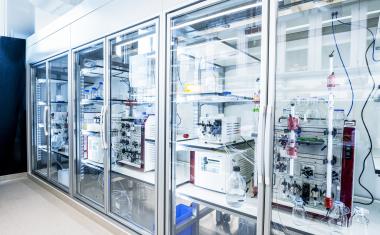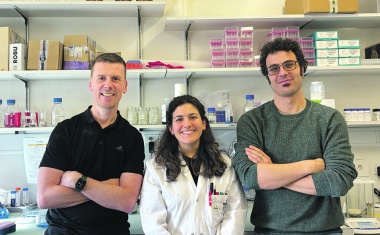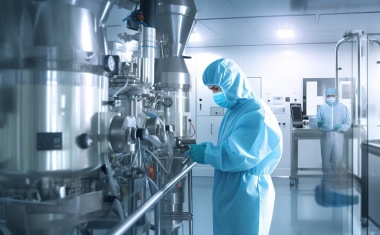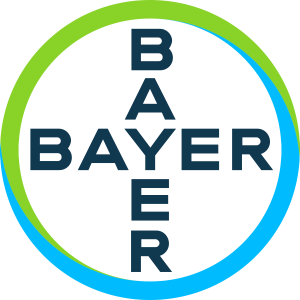
Your Path to the Green Lab at Analytica 2026
Sustainability takes center stage at the World’s Leading Trade Fair for Laboratory Technology, Analysis and Biotechnology in Munich, March 24-27.

Sustainability takes center stage at the World’s Leading Trade Fair for Laboratory Technology, Analysis and Biotechnology in Munich, March 24-27.

The laboratory of the future at the World’s Leading Trade Fair for Laboratory Technology, Analysis and Biotechnology in Munich, March 24-27.

The World’s Leading Trade Fair for Laboratory Technology, Analysis and Biotechnology in Munich, March 24-27.

Strategic Partnerships as the Engine of Innovation

Symeres has appointed Gabriella Gentile as Chief Operating Officer to lead global operations and drive transatlantic growth, leveraging her extensive experience in the pharmaceutical and biotech sectors.

How pharma & biotech company transformed warehouse capacity planning for strategic growth

This Expert Insights eBook hopes to provide scientists with more information on analytical ultracentrifugation (AUC), allowing you to further your research in this field.

Bayer and Kumquat Biosciences announced today that they have entered into an exclusive worldwide license and collaboration to develop and commercialize Kumquat's KRAS-G12D inhibitor.

In a new building at the Wacker Consortium, the company's central research site, researchers are working on new manufacturing processes for biopharmaceuticals and ingredients for food and nutritional supplements.

The award winner will receive access to Merck's technologies and expertise to expand its AI-based genome editing platform.

Syensqo, a global company specializing in advanced materials and specialty chemicals, has announced the opening of new microbiology, (eco-)toxicology, and biotechnology laboratories in Lyon, France.

The bioeconomy offers the chemical industry new pathways to resilience and sustainability—even as economic and political priorities shift

Unlocking nature’s resilience: phytoinitiator mRNAs empower plants to thrive in deserts, saline soils, and harsh climates—no gene editing required.

Primogene is an innovative biotechnology company based in Leipzig that specializes in the development of biotechnological production processes for bioactive ingredients.

Inseit, based in Bern, develops biocatalysts for industrial setups using enzyme immobilization and biocomputation. Addressing biotech and sustainability challenges, Inseit was selected for Venture Leaders Biotech and won two Nucleate accelerator prizes.

Syensqo recently announced a strategic five-year partnership with Bota Bio, a global industrial biotechnology company specializing in biomanufactured, clean, and high-performance consumer products.

US biopharma AbbVie has signed an agreement to acquire US biotechnology company Nimble Therapeutics, including its lead asset, an investigational oral peptide IL23R inhibitor in preclinical development for the treatment of psoriasis and a pipeline of other novel oral peptide candidates with potential across several autoimmune diseases.

Keen Vision Acquisition Corp. (KVAC) and Medera, a clinical-stage biotechnology company, have entered into a merger agreement. Upon closing of the merger, which is expected to occur in the fourth quarter of 2024, the combined company will operate under the name Medera.

French biotech company Pili, a manufacturer of sustainable colorant and pigment, has produced several tons of anthranilic acid, a 100% biobased aromatic compound which the company already converts into dyes and pigments.

The Mexican start-up Neptunus Biotech extracts bioactive compounds from marine microalgae which are used as a bio-stimulant for crops. The assimilation of these molecules makes the plants more resistant to environmental stress.

Greentech firm Afyren Neoxy, a subsidiary of Afyren, received a €3.4 million payment this week for achieving key milestones with its bio-based low-carbon products.

Evonik Vland Biotech, a new joint venture between Evonik China and Shandong Vland Biotech, began operations on January 1, 2024. The venture aims to expand the market presence of their livestock probiotics in Greater China and develop new products. The official opening took place in Qingdao on March 14.

Anglo-Swedish drugmaker AstraZeneca entered into a collaboration and investment agreement with Cellectis, a French clinical-stage biotechnology company, to accelerate the development of therapeutics across oncology, immunology and rare diseases.

The 7th edition of the CPHI Annual Survey was unveiled today highlighting trends for 2024. A total of 250 pharmaceutical executives were surveyed with 35 probing questions, with their answers informing the industry landscape for the next year, spanning all major pharma markets.

Olon Biotech, a division of Italian API producer Olon, has inaugurated a new facility for the industrial-scale production of proteins from alternative sources at its site in Settimo, Italy. Olon pegged the investment in the new plant at €70 million.

Many life science companies generate large swathes of data.

The pharmaceutical market is undergoing a profound transformation, driven by innovation among biologics and advanced therapies (ATs). This shift is not only redefining the treatment landscape but also presenting new opportunities and challenges related to the drug development and manufacturing value chain.

Japan-based specialty chemicals manufacturer Toyo Ink has signed an agreement to invest in US-based biotech company VLP Therapeutics (VLPT) and its subsidiary company VLP Therapeutics Japan (VLPT Japan). Financial details of the agreement were not revealed.

SK Biopharmaceuticals, a South Korean-based biotech, has announced its new strategy to propel the company towards becoming a global “big biotech.”

Abcam, a biotech supplier, has garnered interest from major US life sciences companies Danaher and Agilent as it explores its potential sale. The company has also approached Germany’s Merck and attracted attention from large buyout firms, say sources of Bloomberg.

Biopharma companies are facing funding challenges in 2023 as interest rates rise and investors are becoming more risk adverse. There is hope on the horizon, say some analysts, while others project a prolonged slump due to inflation and global instability. Established pharmaceutical companies are often seen as safer investments, with larger developers expected to perform well in 2023, especially if litigation threats against drugs like Zantac disappear. However, concerns about revenue gaps continue for big companies like GSK and Sanofi, and their strategy and leadership will be closely monitored in the coming months.

Swiss CDMO Siegfried has acquired a 95% stake in Dinamiqs, a compatriot biotech focused on developing and manufacturing viral vectors for cell and gene therapies.

Austrian biotech Proxygen has announced a multi-year collaboration and license agreement with US drugmaker Merck & Co to identify and develop molecular glue degraders against multiple therapeutic targets. The deal could be worth up to $2.55 billion for Proxygen, based on achieving certain milestones.

Bachem, a Swiss specialist developer and manufacturer of peptides and oligonucleotides, has signed another order worth more than 500 million Swiss francs – or $531 million – to supply large volumes of peptides following a joint development project. The identity of the customer has not been disclosed.

Pfizer is in the early stage of talks to acquire Seagen (formerly Seattle Genetics), a US biotech focused on developing treatments for cancer, according to a report in the Wall Street Journal that cited people familiar with the matter. The purchase price could potentially be more than $30 billion.






















